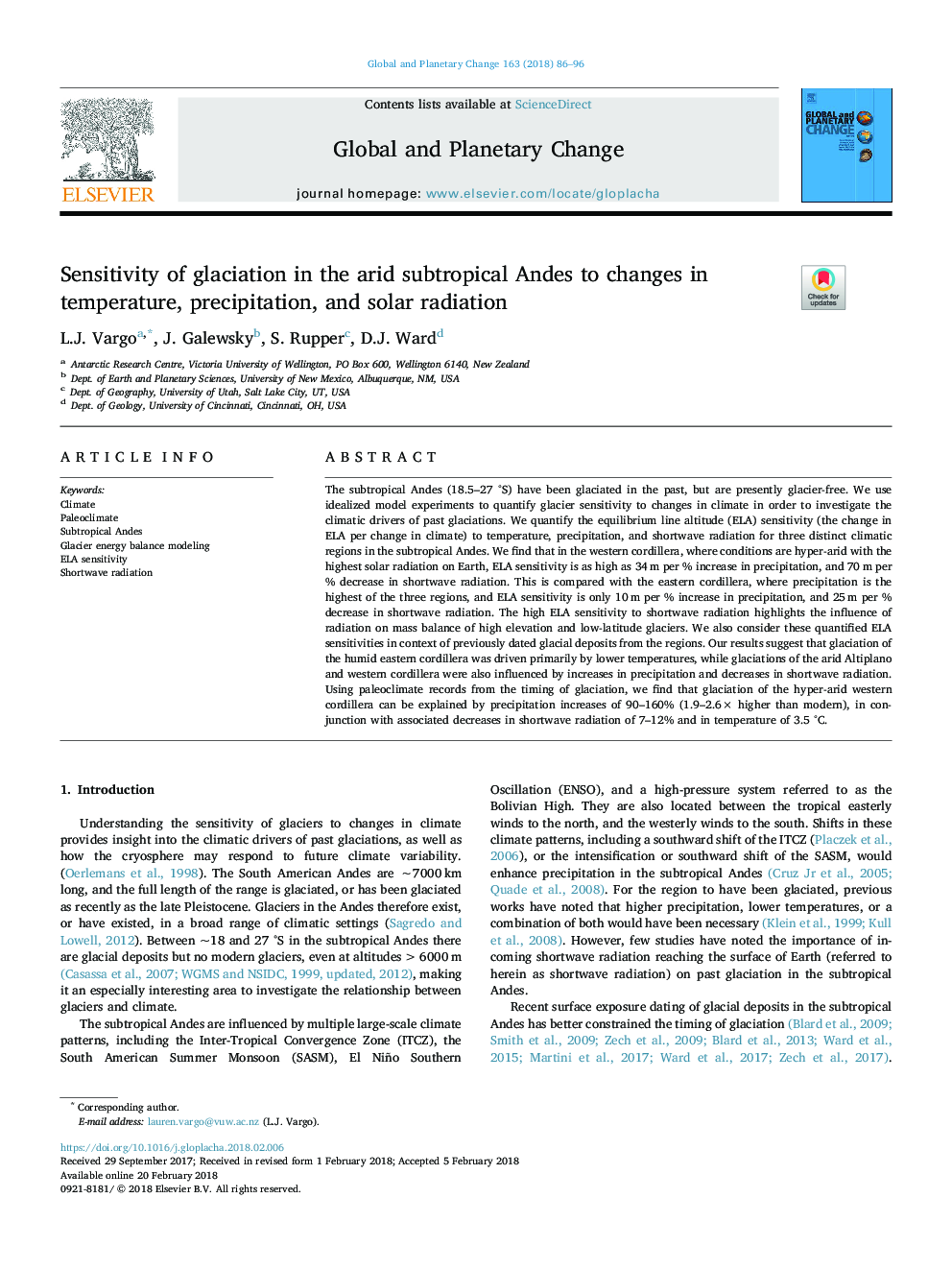| Article ID | Journal | Published Year | Pages | File Type |
|---|---|---|---|---|
| 8867541 | Global and Planetary Change | 2018 | 11 Pages |
Abstract
The subtropical Andes (18.5-27 °S) have been glaciated in the past, but are presently glacier-free. We use idealized model experiments to quantify glacier sensitivity to changes in climate in order to investigate the climatic drivers of past glaciations. We quantify the equilibrium line altitude (ELA) sensitivity (the change in ELA per change in climate) to temperature, precipitation, and shortwave radiation for three distinct climatic regions in the subtropical Andes. We find that in the western cordillera, where conditions are hyper-arid with the highest solar radiation on Earth, ELA sensitivity is as high as 34â¯m per % increase in precipitation, and 70â¯m per % decrease in shortwave radiation. This is compared with the eastern cordillera, where precipitation is the highest of the three regions, and ELA sensitivity is only 10â¯m per % increase in precipitation, and 25â¯m per % decrease in shortwave radiation. The high ELA sensitivity to shortwave radiation highlights the influence of radiation on mass balance of high elevation and low-latitude glaciers. We also consider these quantified ELA sensitivities in context of previously dated glacial deposits from the regions. Our results suggest that glaciation of the humid eastern cordillera was driven primarily by lower temperatures, while glaciations of the arid Altiplano and western cordillera were also influenced by increases in precipitation and decreases in shortwave radiation. Using paleoclimate records from the timing of glaciation, we find that glaciation of the hyper-arid western cordillera can be explained by precipitation increases of 90-160% (1.9-2.6à higher than modern), in conjunction with associated decreases in shortwave radiation of 7-12% and in temperature of 3.5 °C.
Related Topics
Physical Sciences and Engineering
Earth and Planetary Sciences
Earth-Surface Processes
Authors
L.J. Vargo, J. Galewsky, S. Rupper, D.J. Ward,
